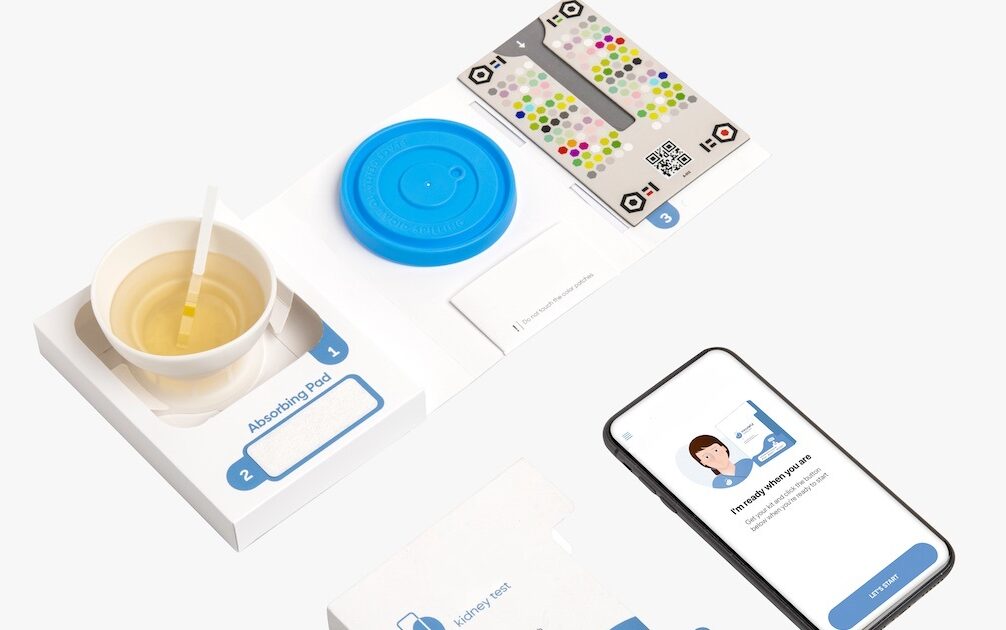Calls for Ukraine
Calls for Europe
Calls for USA

In a recent study published in Nature Biomedical Engineering, a research team from the Republic of Korea investigated a novel diagnostic system for early detection of bladder cancer from unprocessed urine samples.
The study showed that the device uses a double-layer system and floating particles to transmit fluorescent signals, which removes the need for sample preparation and makes the device a promising option for early detection of bladder cancer at home.
Bladder cancer is one of the most common forms of cancer worldwide and is characterized by a high rate of recurrence and progression. Early diagnosis, especially at minimally invasive stages, is crucial as it significantly improves survival rates.
However, existing diagnostic methods such as cystoscopy and urine cytology are invasive, expensive, and require specialized personnel. In addition, these methods often lack sensitivity for early detection and are often dependent on the characteristics of urine specimens.
Recently, several non-invasive urine-based diagnostic methods have emerged, including molecular and enzymatic assays. However, these methods often require sample pretreatment or do not accurately detect biomarkers at low concentrations, especially in complex samples such as those with the presence of blood.
The unmet need for a sensitive, specific and user-friendly point-of-care diagnostic tool emphasizes the urgency of developing affordable systems for early detection and monitoring of bladder cancer.
In this study, the team developed and validated a diagnostic device using a biphasic system containing floating organogel particles, which are made by mixing low molecular weight compounds with organic media, to detect early-stage bladder cancer from untreated urine samples.
The system includes enzymatic degradation of hyaluronic acid-based beigel films containing organogel particles.
After degradation by urine hyaluronidase, a biomarker for bladder cancer, the floating organogel particles floated into the oil layer, releasing fluorescent dyes. The dyes change color when dissolved in different solvents.
Bigel films were optimized for stability and sensitivity to low concentrations of hyaluronidase by adjusting the crosslinking density.
In addition, the device was clinically validated using 105 urine samples, including from patients with bladder cancer, individuals with other genitourinary diseases and healthy individuals.
The device was tested using a low-cost, portable fluorescence scanner based on a smartphone. This minimized the need for laboratory infrastructure and made it possible to use the device at home.
The study showed that the new diagnostic system effectively detects bladder cancer, including in early stages, with high sensitivity and specificity.
Using raw urine samples, the system achieved an accuracy of about 90% in clinical trials involving 105 participants, including bladder cancer patients, individuals with other genitourinary diseases and healthy controls.
The device’s ability to detect hyaluronidase activity, a key biomarker of bladder cancer, has been validated even in samples with complex compositions, such as those containing blood, from patients with hematuria.
In addition, the biphasic system has proven to be stable in maintaining signal clarity by spatially separating the fluorescent signal from urine components that may interfere with detection.
In addition, the integration of a smartphone-based fluorescence reader confirmed the practicality of the system by providing inexpensive, stable, and convenient testing.
The results suggest that the new system is a promising tool for non-invasive home screening and early detection of bladder cancer.
The biphasic system combined with a smartphone-based fluorescence reader offers an affordable and accessible solution for home testing.
Furthermore, by addressing limitations of existing methods, such as interference from hematuria and low sensitivity to biomarkers, this innovation represents a significant advance in non-invasive cancer diagnosis.
Please rate the work of MedTour
